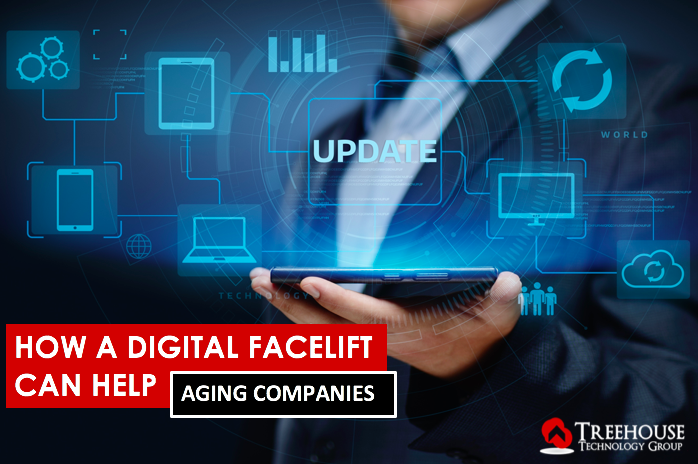According to a recent report by professional services company KPMG, more CEOs are embracing digital transformation than ever before. KPMG’s annual report surveys CEOs in a wide variety of industries. Their 2018 Global CEO Outlook report, released in May, found that 95 percent of CEOs now believe digital technology innovations present an opportunity rather than a threat.
This response represents a huge increase of 30 points from last year’s survey when many CEOs were still wary of embracing digital. The report also found that 71 percent of global CEOs are now prepared to lead their companies through these transformations and this is vital to their success.
Sometimes those at the top of a company are those least likely to be comfortable with the latest technology. This tends to be especially true in aging companies. Often times, those companies that have been around the longest are still at the top of their industry because they have a proven track record. But with new startups sprouting up every day, aging companies must find ways to remain competitive.
That’s why many companies are currently undergoing a digital transformation. Firms are now partnering with technology service provides to streamline their operations, offer new and innovative options to customers and better attract new business. And the savings as a result of these digital facelifts is adding up. According to a new report by Accenture, a management consulting company, digital transformation can amount to $60 billion in savings for healthcare organizations.
Here are three ways a digital facelift can benefit your company.
1. Data Migration
Last year, a city council in the United Kingdom boasted it had saved 60 percent on its data infrastructure by launching a data migration effort. Going digital can be especially beneficial for those companies encumbered by the sheer amount of data they must contend with on a daily basis. When data is spread out across different systems it can be difficult for companies to effectively manage and analyze. After migrating its data, the Derby City Council identified a number of benefits including “energy efficiency, resilience, security, sustainability, and both contractual and deployment flexibility.”
2. Artificial Intelligence
According to the KPMG report, many CEOs are now in favor of utilizing artificial intelligence, another major reversal from years past. The study found that 62 percent of global CEOs and 71 of CEOs in the U.K. now say artificial intelligence will create more jobs over the next three years than it will eliminate. That’s nearly double the 38 percent of CEOs who still see artificial intelligence as a threat.
AI is being used in a variety of ways, but one area where companies are seeing the most results is when applying AI to marketing. According to a report by Wakefield Research, 80 percent of marketing executives say AI will revolutionize their industry by 2020. Of those surveyed as part of the study 60 percent said AI gives them better insights into accounts, 56 percent said AI provides a more detailed analysis of campaigns, 53 percent said AI helps identify prospective customers and another 53 percent said it expedites daily tasks.
3. Payments
For those just dipping their toe into the new technology waters, AI might sound a little daunting. But there are other digital tools that let companies adopt new innovations one step at a time. New payment solutions that allow for easier transactions are one example and they’re being utilized by some of the oldest and most traditional industries. Last August, taxis in Washington, D.C. began switching to digital meters using a mobile payment application. This is a prime example of how a digital facelift can aid aging companies. Traditional taxi companies have been under fire in recent years as ride hailing applications have begun dominating the market. In order to compete, taxis have had to adapt.
If you’re thinking about launching a digital transformation, but want to find the right solution for your company, contact TTG for a free consultation. We specialize in helping companies develop a robust digital transformation strategy alongside the technical implementation of solutions best suited for their specific business needs.
